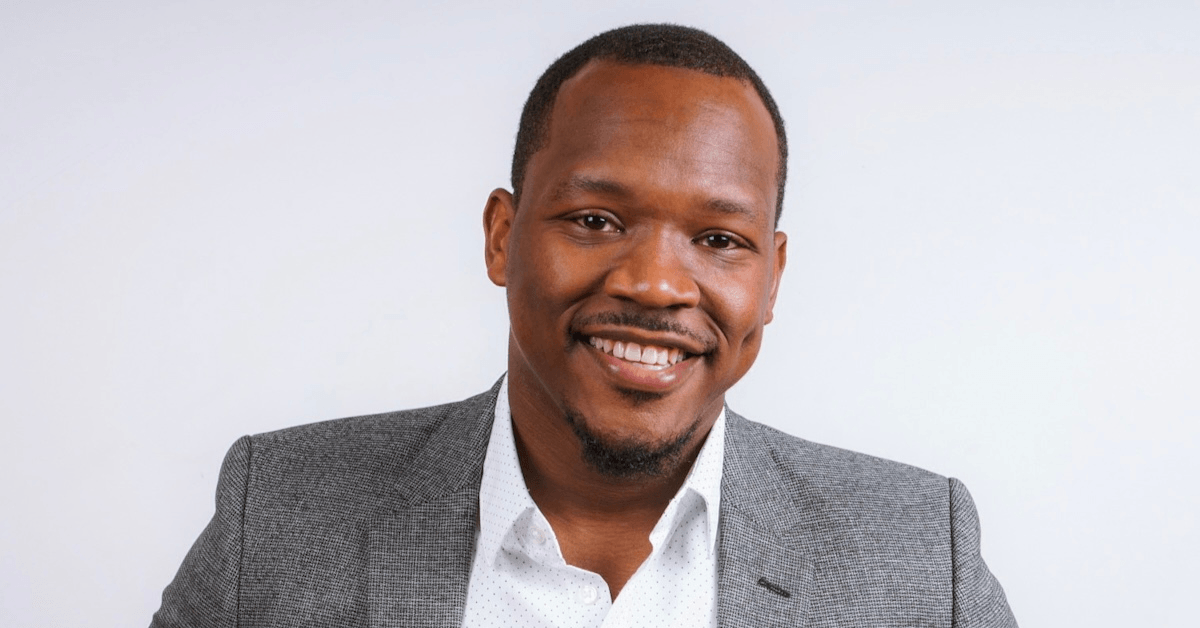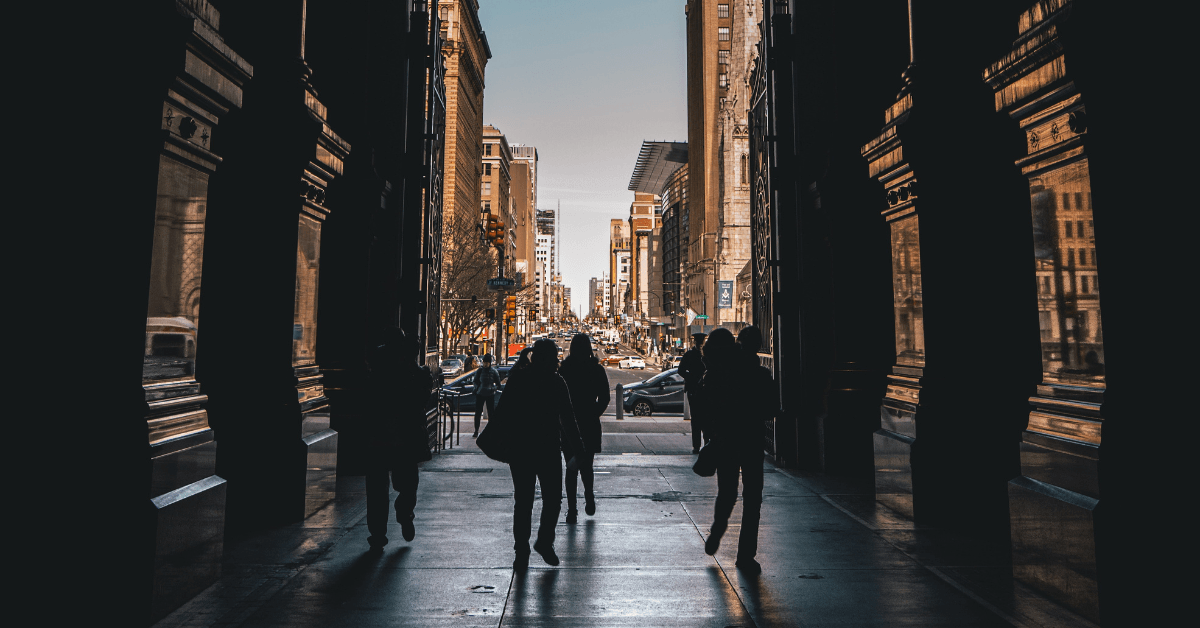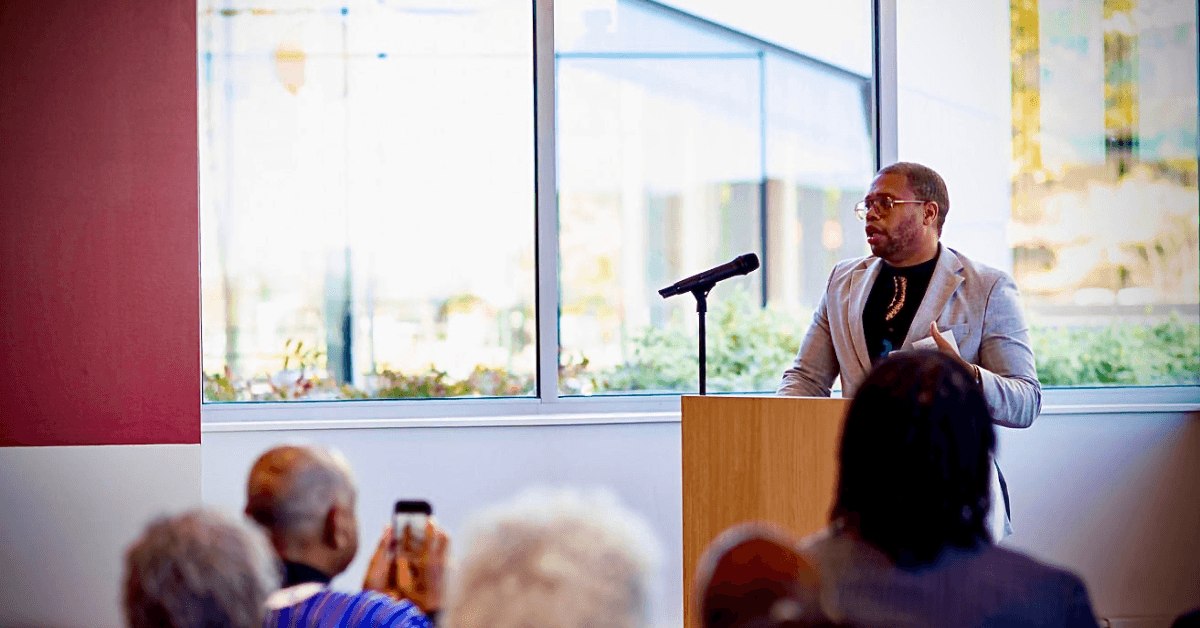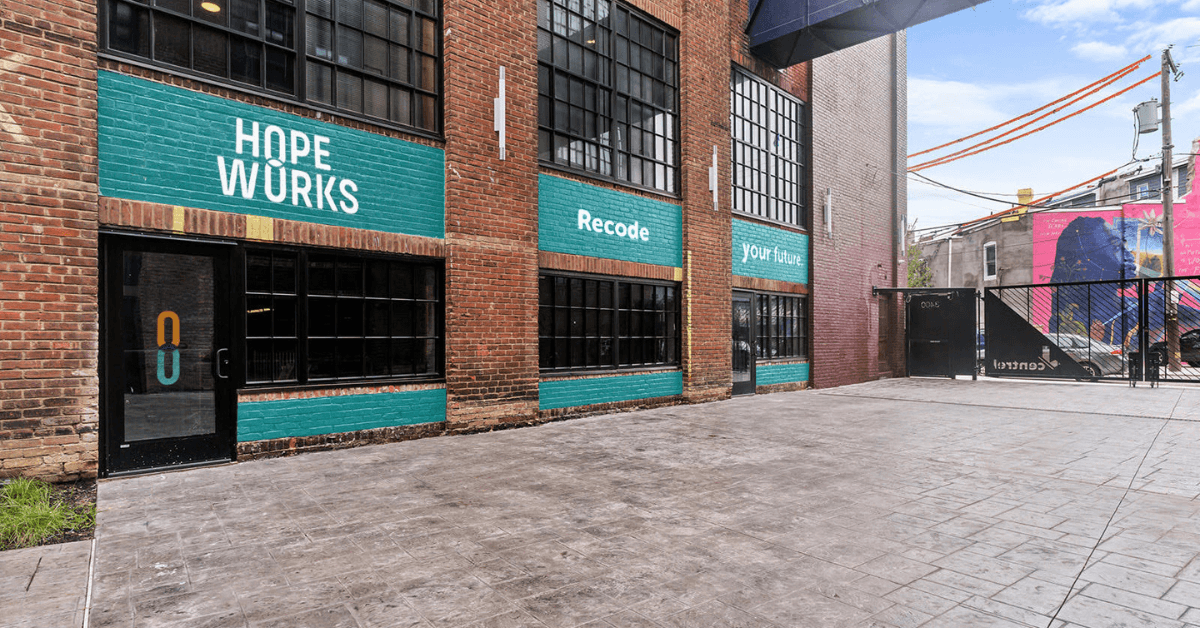Key Insights:
- West Philly native Raheem Manning was named Philadelphia’s first Nighttime Economy Director.
- Other cities with a “night mayor” include New York, Pittsburgh, Washington, D.C. and more recently Atlanta.
- Report finds that violent crimes in Philadelphia do not have a strong correlation to the location of nightlife venues.
The Philadelphia Department of Commerce recently named Raheem Manning, 33, as the city’s first Nighttime Economy Director to revitalize the nightlife, hospitality and leisure industries in the city. Manning’s role will support Philadelphia businesses operating after 5 p.m., not just those considered to be nightlife.
A West Philly native, Manning attended Clark Atlanta University and eventually moved back to Philadelphia where, in 2015, he started his business The Weekender, a travel and entertainment management company for young Black professionals.
Manning was appointed as the co-chair of Philadelphia’s Arts and Culture Task Force in 2020, which was set up to support losses the art and culture industry faced due to COVID-19. The creation of Manning’s new position was a recommendation from this initiative.
Michael Fichman, the founder of 24HrPHL, a civic engagement project within Philadelphia’s nightlife arts and culture community, authored the Arts and Culture Task Force proposal for the creation of a nighttime economy office. Fichman said lack of support for businesses that thrive in the evening was already an issue pre-COVID-19. In 2020, he collaborated with other researchers to compose the Global Nighttime Recovery Plan, a guide for re-engaging nightlife during and after the pandemic.
“The idea of nighttime governance is attractive to traditional business-oriented politicians and many business interests in the city,” Fichman said in a press release. The nighttime economy is made up of activities, businesses and workers operating at night, including night shift workers, late-night transportation and retail.
“If you ask any of the business owners who deal in the nighttime economy and who have to work with the city whether they need more attention for their specific sector, they’ll say, ‘Absolutely.’ They’re very fed up with how little they’re understood or vouched for by the city,” he said.
Manning’s role is being funded in part by the mayor’s $5.8 million budget approved by the City Council in June. In the surrounding area, New York, Pittsburgh and Washington, D.C. already have nighttime economy directors.
In the research leading to the formation of this position, Manning told The Plug that he spoke with nighttime mayors and directors from Amsterdam, the first city to create such a role, to Pittsburgh for insight.
“One thing we found is that this position is very successful at helping businesses thrive,” Manning said. “A lot of the advice we got was about where this position should be housed as far as being most effective. So one thing we did uniquely here in Philadelphia is have the position housed in the Commerce Department because [it] is already the engine of business attraction and retention in the city.”
Increasing safety in Philadelphia’s commercial districts at night has been paramount since a shooting in June left three dead and 11 injured on South Street.
In an attempt to enforce liquor laws and monitor violence at bars and restaurants, another city to recently add a night mayor to its governance is Atlanta. The Atlanta City Council recently tabled an ordinance that would have given the city authority to shut down establishments with two or more violent conduct or crime reports over two years.
A measure like this is unlikely to occur in Philadelphia.
“If we don’t have safety at the front of our minds our nightlife will never thrive,” Manning said, adding that his research has found that a lot of the violent crimes in the city do not happen at nightlife establishments. “The nightlife is thriving, it’s safe and people are able to operate. We want to just put a plan together to continue to make it that way.”
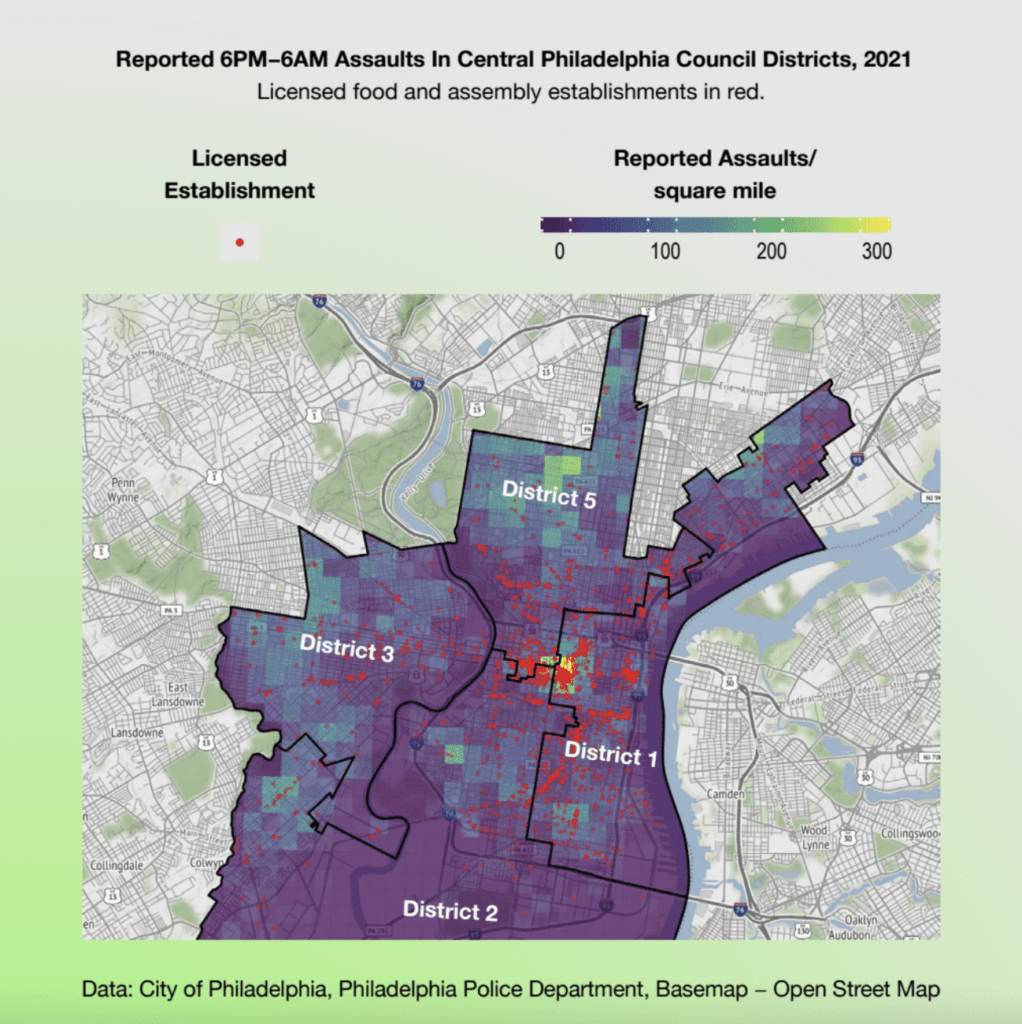
Fichman’s Global Nighttime Recovery Plan found that assault reports in Philadelphia do not primarily co-locate with licensed restaurant and assembly establishments.
Additionally, with remote work, businesses are dealing with a decrease in people coming into the city. The new nighttime economy director plans to find ways to support businesses that have been affected by the pandemic. An estimated 11,000-19,000 workers in Philadelphia no longer travel to the city per workday due to remote work, a Pew report found.
Manning’s next stop is to go on a listening tour in the fall to find out what businesses and the people of Philadelphia need, but in the meantime, he welcomes suggestions on Twitter.
“What I want to do is continue to enhance the uniqueness we have here,” Manning said.

